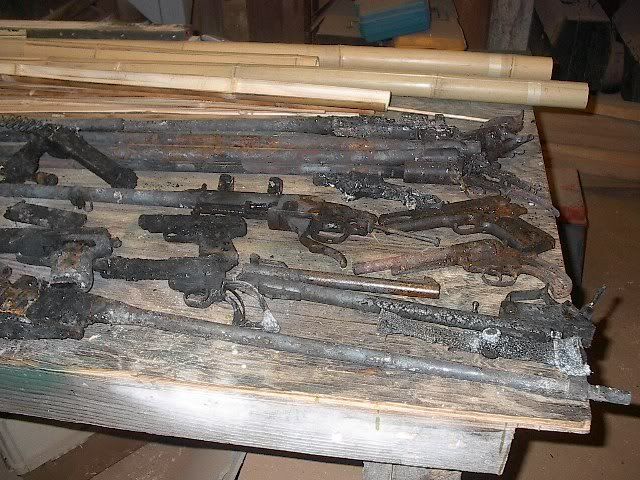I was wondering if anyone here has gone through a shop or house fire.
I'm doing research for another book and I need to know what happens to the tools. Very quickly, the characters live above their shop/work space, which is set on fire by some jerk. In addition to paper and wood, there are inks and wood finishes, such as lacquers and varnishes, oils, waxes, etc., downstairs. The characetrs get out fine, but the entrie structure is burned down to the foundation.
What I need to know is what happens to the plane blades, chisels, hammers, and other tools. Will they fuse because of the heat? Will they lose their temper? Can they be salvaged, and if so, how?
How do you clean these things?
I'm going to contact some insurance people and restorer people, and I can imagine the devastation of finding both home and livelihood destroyed like this, but if anyone wants to share with me their experiences, I'd appreciate it.
I don't want to cause anyone undue pain by bringing this up, but if you want to discuss, I'd love to hear. You can always reach me via email at ohio at holytoledo dot com.
As always, thanks.




 Reply With Quote
Reply With Quote







